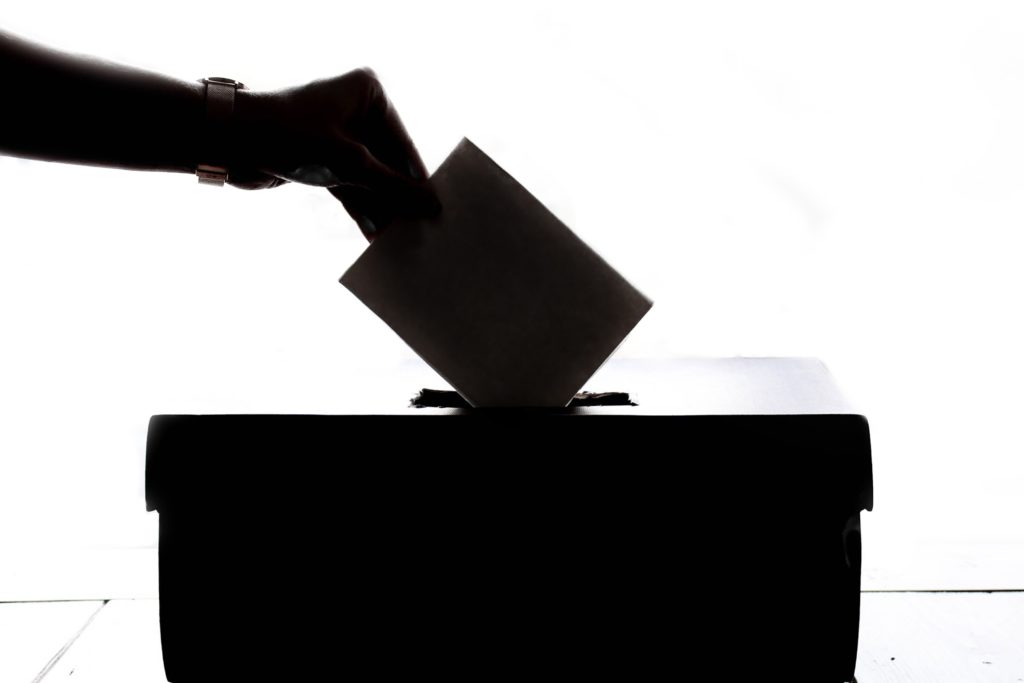In case you haven’t heard, Tuesday, November 6th is a big day in the United States – the midterm elections. The 2014 midterm elections saw the lowest voter participation in more than 70 years, but voter turnout in 2018 is expected to reach its highest level in decades. Low voter turnout is often ascribed to indifference, disillusionment, or the sense that one person’s vote won’t make a difference. So why should you vote?
Looking at the bigger picture and setting aside, for a moment, the myriad of issues that make the 2018 midterms so consequential (including healthcare, the economy, immigration, climate change, and racial, religious and gender rights and equality) and the deep division in this country between Republicans and Democrats, the right to vote for so many in this country is not a right that was always guaranteed. Suffrage, or the right to vote in political elections, is not a right that was automatically guaranteed to all Americans of a certain age with the ratification of the Constitution.
Women’s suffrage – the legal right of women to vote – took more than half a century of struggle and protest to achieve. Beginning in the mid-19th century, women began the long struggle to gain the right to vote. Led by such activists as Susan B. Anthony and Elizabeth Cady Stanton in the mid- to late-19th century and Carrie Chapman Catt in the early 20th century, women lobbied, marched, protested, practiced civil disobedience, and filed lawsuits in their fight for voting equality. Finally, in 1920, less than 100 years ago, the 19th Amendment to the U.S. Constitution was ratified. It states, “The right of citizens of the United States to vote shall not be denied or abridged by the United States or by any State on account of sex.”
The right to vote for racial minorities in the United States took nearly 100 years to achieve. The 15th Amendment to the Constitution, ratified in 1870, granted African American men the right to vote by declaring that the “right of citizens of the United States to vote shall not be denied or abridged by the United States or by any state on account of race, color, or previous condition of servitude.” However, Southern states enacted laws that raised barriers to voter registration and effectively disenfranchised African Americans (such as the use of poll taxes and literacy tests), and the U.S. Supreme Court decisions in the late 19th century interpreted the 15th Amendment narrowly. In the early 20th century, the Supreme Court began interpreting the Amendment more broadly, but it would take the work of the voting rights activists during the civil rights movement of the 1950s and 1960s to achieve voting rights for African Americans and all racial minorities. These activists were subjected to mistreatment and violence, witnessed by the nation in March 1965 when peaceful participants in a Selma to Montgomery, Alabama march for voting rights were attacked by state troopers when they refused to turn back. This led President Lyndon B. Johnson to call for comprehensive voting rights legislation and in August 1965, the landmark Voting Rights Act of 1965 was signed into law. The Voting Rights Act provides federal oversight of elections in discriminatory jurisdictions, banned literacy tests and similar discriminatory devices, and created legal remedies for people affected by voting discrimination.
So, let’s turn back to the question – why should you vote? Because generations before you fought so hard to earn you that right. Because the right to vote is such a powerful opportunity to participate in the democratic process that people have been willing to be arrested, beaten, and even to die for it. Because even today the fight for voting rights lives on. Vote on Tuesday because we should never take your right to vote for granted.
